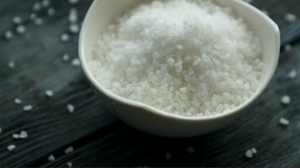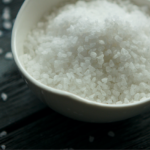Do you salt your food on a daily basis?

Many people salt their food before even tasting it. It’s a habit and a dangerous one at that.
While sodium is naturally occurring and we need in our bodies, when consumed to excess, it can be harmful. The majority of the salt consumed does not come directly from your at home shaker it is already hidden within the food we buy on a regular basis.
It is astounding how quickly the milligrams of salt add up when tracked on a normal day for the average American. The results are evident. Heart disease is one of the top causes of death in 2018.
How Salt Can Harm Your Health
Salt causes your body to hold on to fluid. This retention increases the blood volume flowing through your system making your entire cardiovascular system work harder than it should. Over time this increase can be dangerous leading to hypertension. It can cause pressure to build against your arterial walls leading to a weakening of the walls. From there it can progress to blood clot formation, organ and tissue damage, and plaque builds up. Blood pressure is known often as the silent killer because there are many times no visible signs until cardiovascular disease actually takes hold.
You Do Have A Choice!
As much as 80% of the salt American’s eat is found in prepackaged, processed, and restaurant-prepared foods. Choosing to eat at home helps tremendously.
Those with conditions such as diabetes, kidney disease and those over 50 who need to take extra notice of this intake. You can join tracking sites such as www.myfitnesspal.com which is not just for weight loss, you can track your caloric intake as well as your sodium, proteins, carbs and much more at the touch of a button. Once you know where you stand it is easier to get a good picture and how you can reduce your salt intake. The CDC recommends in the 2015–2020 Dietary Guidelines that Americans consume less than 2,300 milligrams (mg) of sodium per day as part of a healthy eating pattern.
If you are at risk of heart disease and in need of a cardiologist, call Tampa Cardiovascular Associates for a consultation. Call us today at 1-813-975-2800 or fill out a form online. We look forward to hearing from you! www.tampacardio.com.
